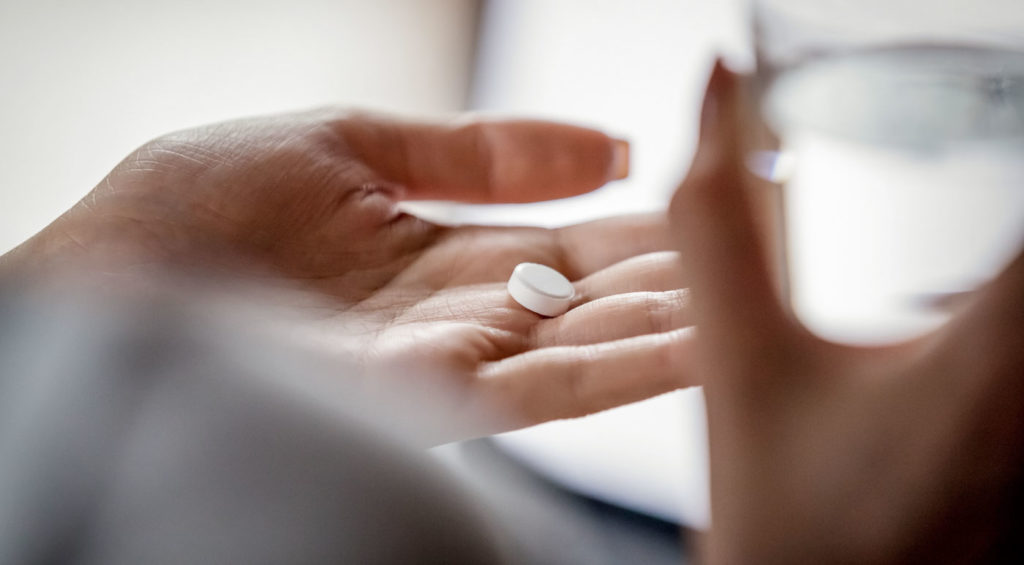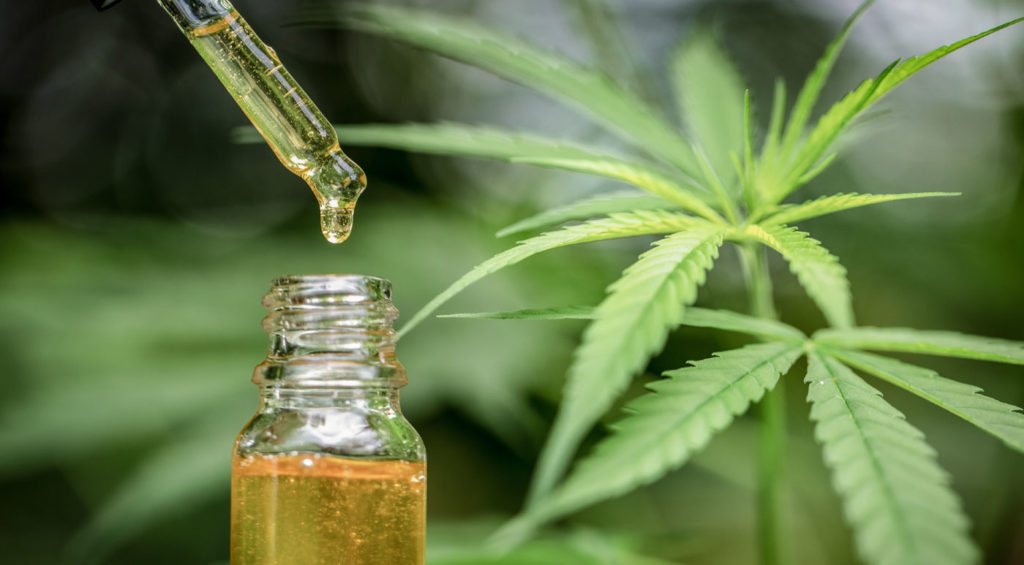
It’s no surprise that the U.S. is facing an opioid epidemic (which includes opiates). This epidemic is taking lives, ripping apart families, and costing the country tens of billions of dollars. The NIH reports that 130 people in the United States die each day of an opioid overdose.
The opioid epidemic is multifactorial, but the adverse effects a person experiences when stopping opiates is a significant concern.
When stopping opiates, a person experiences withdrawal symptoms that, for many, are an obstacle to quitting. Currently, there are some available options for assisting with withdrawal symptoms; however, they have their drawbacks and are not appropriate for everyone.
CBD has received a lot of interest from both researchers and the general public for its proposed health benefits in helping some people manage anxiety, pain, and seizures. And CBD may be used through a variety of means, such as vaping, capsules, and a variety of edible options, which makes it easy for people to find a product that works best for them.
While CBD products that contain CBD derived from the industrial hemp plant are federally legal throughout the U.S., it’s highly recommended that those wanting to try CBD get their information and purchase products through a trusted resource to ensure the products are third-party tested for purity.
Recently, the question of whether CBD could be helpful in our current opioid epidemic has been at the top of many people’s minds.
CBD for Opiate Withdrawal: Just the Facts
Opiate withdrawal occurs when a person who uses opiates reduces or stops using these drugs abruptly. Symptoms of opiate withdrawal can be excruciatingly painful and can deter people from ending their use. There are medications available to help, but access and efficacy are limited. The research on the use of CBD for opiate withdrawal has just started, and we need more studies to know for sure if CBD may be useful for managing symptoms of opiate withdrawal.
How Did We Get Here?

The opioid issue began in the 1990s. It stemmed from misinformation from the opioid pharmaceutical companies that told prescribing doctors that opioids are not addictive. This led to a surge of opioid prescriptions in the United States.
The truth is and always has been, that opioids and opiates are extremely addictive.
Each year, millions of opioids are prescribed, which has led to the current epidemic. In fact, the NIH reports that 8-12% of people prescribed opioids by their doctor become addicted, and 80% of people who try the street drug heroin first used prescription opioids.
The opioid issue is complex, and there is no simple solution. However, the people of the U.S. have taken notice that things need to change and have put several goals into place, which include:
- Alternative pain management approaches
- Education for both doctors and consumers on the addiction potential of opiates and opioids
- Access to recovery resources
- Access to overdose-reversing drugs
Approaches to help people manage opiate withdrawal symptoms are an essential component. Researchers have begun to explore the possibility of using CBD for opiate withdrawal.
What Are Opiates?
Opiates include the street drug heroin as well as prescription pain-killers such as morphine, oxycodone (Oxycontin), and Fentanyl.
They bind to opioid receptors in the brain, which then produce a feeling of euphoria and can make a person oblivious to their pain levels. They also bind to opioid receptors in the digestive system, causing slower motility resulting in constipation, and they affect the opioid receptors in the brain that control breathing rate. This is why opiate overdoses cause a person to stop breathing.
They have an extremely high potential for abuse and addiction. Many people who use opioids, even when used as prescribed in recommended dosages and frequency, become physically dependent on them.
When a person uses opiates, their opiate receptors become flooded with opioids, and this changes the brain. Over time a person needs more and more of the drug to get the same effect—this is known as building a tolerance for the drug. When a person stops using or reduces their use, and their brain doesn’t receive the large number of opioids it expects, the person experiences withdrawal. Common opiate withdrawal symptoms include:
- Digestive issues such as nausea, vomiting, and/or diarrhea
- Flu-like symptoms
- Severe muscle aches
- Anxiety
- Insomnia
- Changes in blood pressure
The severity and duration of withdrawal symptoms vary from person to person. They depend on how long a person has been using opiates and how much they have been using. In many cases, symptoms last for a few days to a week.
The Conventional Approach to Opiate Withdrawal

Currently, the most common treatments for opiate addiction and opiate withdrawal are supportive therapies like fluids and anti-diarrhea medications.
In addition, Clonidine is often used, which helps manage some of the withdrawal symptoms and discomfort.
Doctors who practice medication-assisted treatment may use one of two different drugs, which both bind to opiate receptors: Buprenorphine (Suboxone) and Morphine.
Although these drugs do not make a person feel high like opiates, they still carry a risk of physical dependence. They will only prevent withdrawal when the medications are taken as prescribed—and if a person stops taking them, they will experience opiate withdrawals.
Issues with the Available Options
Some individuals, as well as some addiction and recovery treatment providers, are against using an opiate to treat opiate addiction and withdrawal. Also, these medications are only available when a person is in a medical setting, which makes opiate withdrawal difficult for a person who does not have access to medical care.
In short, we are in great need of alternative approaches to opiate withdrawal that are effective, accessible, and safe.
Does CBD have a place in helping with opiate withdrawal?
What We Know about CBD for Opiate Withdrawal

The research on the possibilities of using CBD for opiate withdrawal is still in its early stages. There have been a few studies in animals and humans, but in short, we need more clinical studies.
Right now we don’t entirely know if CBD is effective for opiate withdrawals, but we do have some preliminary insight.
What the Research Says
A recent review looking at the different brain mechanisms of opiate withdrawal found that cannabinoid receptors are involved. Although this was not a direct study on the effect of CBD in opiate withdrawal, it will likely encourage further research on the subject.
The Handbook of Cannabis and Related Pathologies discussed what we currently know about CBD for opiate withdrawal. They reported that a research study using animal models found CBD has anti-addictive effects. This is just the beginning, but things seem to be off to a good start.
In a report in the American Journal of Psychiatry, Yasmin Hurd, the lead researcher in a human study on CBD and heroin addiction, had some exciting results. The study was on previous heroin users who were shown triggering images of IV heroin use. They were either given CBD or a placebo. They found that CBD effectively reduced their heroin cravings and decreased anxiety levels.
This was the first study of its kind and was not on acute opiate withdrawal; however, these promising results are sure to support further research.
Another Aspect to Consider
As previously mentioned, opiates are prescribed to manage pain. Current research supports that CBD can be effective for reducing several types of pain, including joint pain, nerve pain, and rheumatoid arthritis. Therefore, CBD may serve the opiate epidemic in another way, that being an option for managing pain other than opiates.
A Summary of the Research
There have not been any studies on CBD for opiate withdrawal directly.
Research is in its early stages, and there has been one clinical trial on CBD and opiates. This study found CBD reduced heroin cravings in former addicts.
Animal studies and brain mechanism studies support that CBD may be valuable in managing opiate withdrawals.
CBD has been shown to decrease pain levels in research. CBD may be useful as an alternative approach to opiates for managing pain.
Is CBD Addictive?

The short answer is no, CBD is not addictive. The WHO reports that “In humans, CBD exhibits no effects indicative of any abuse or dependence potential.”
CBD is derived from the industrial hemp plant which, unlike its sister the marijuana plant, has minimal levels of the psychoactive component tetrahydrocannabinol (THC).
CBD products are further processed to remove remaining traces of THC to a level of less than 0.3%. This means in addition to not being addictive, CBD does not cause a person to feel “high”.
Final Thoughts on CBD for Opiate Withdrawal
The research on CBD for opiate withdrawal is just beginning, but the early evidence is promising. If CBD is effective in managing opiate withdrawal symptoms, the positive outcomes have the potential to be a game-changer for millions of Americans.
If you or someone you know is struggling from addiction, reach out to the National Drug Help Line to find resources.
